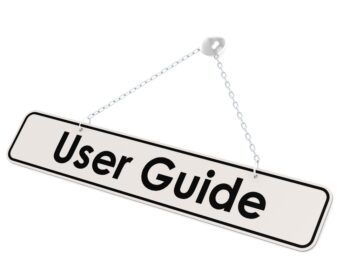Is it Cost Effective: Avoid Setting Bad Precedents?
If you ask different claim professionals, you will get different answers to the question: Is it a good idea to close a litigated claim now by paying the employee not only the actual value of the claim but also the amount you anticipate in future legal cost if you do not settle for the employee's attorney demand?
For example: The mid-point of your settlement range for combined permanent disability and future medical is $50,000. The expected legal expense to litigate the claim to conclusion is $10,000. The employee's attorney is demanding $60,000 and refuses to negotiate any further. Do you settle for the $60,000 or do you continue to defend the litigated claim and possibly end up paying more when you combine the final settlement cost with the cost of defending the claim?
The precedents your company sets, whether good precedents or bad precedents, impact your work comp costs. The employee's attorney knows the value of the claim and knows approximately what it is going to cost you to defend the claim, hence the high demand.
An experienced plaintiff's work comp attorney knows the settlement reputation of your company. S/he knows the settlement reputation of the adjusters s/he deals with. The plaintiff attorney knows if you will add the cost of defense to the true value of the claim to get it settled, or if your company will never pay more than the claim's value, regardless of how much you spend defending the claim. S/he also knows the quality of the defense attorney you hired. All these factors go into the plaintiff attorney's calculation of what to demand for the claim.
A large national grocery store chain has built a strong reputation over the years as a company never voluntarily paying more than the lower end of the settlement range of a work comp claim. Plaintiff attorneys know when they are dealing with this self-funded employer it is going to take a considerable amount of time and a lot of effort to get anything over the lower end of the settlement range for the employee.
They know this employer will spend a lot of money with their defense counsel, but will never consider adding defense cost to the settlement value. The precedent the grocery store chain established over the years is paying off for them now with many of the plaintiff attorneys who settle claims quickly and fairly. Some people will argue this company spends too much on defense cost, while others will argue their total cost of claims is lower because they refuse to ever voluntarily over pay a claim.
What About This Scenario?
An employer closed a location and laid off 110 workers. Within a few weeks, 80 of the workers filed a workers' compensation claim for injuries unreported before they were laid off. The dilemma for the employer: Do you pay nuisance value to get rid of most of these questionable claims or do you deny and defend them all, even if a few of them are legitimate?
One approach to the cost debate is: If you are going to have a steady stream of claims in a geographical location, follow the example of the grocery store chain and never pay more than the value of the claim, regardless of defense cost. It will pay off for your company in the long run. If you have a single claim or a few claims in a geographical location, the better cost approach from a financial standpoint is to add part of the defense cost to the true settlement value to get the claim resolved at the most economical cost. (workersxzcompxzkit)
Claims to settle quickly:
1. A claim where it is obvious the employee will never be able to return to his former job.
2. A claim reaches MMI and no further medical progress is likely.
3. A claim where the injured employee has moved out of state or is contemplating moving out of state.
4. A claim where the employee has reached or is about to reach the normal retirement age for their occupation.
5. A claim where the employee has a non-related serious illness preventing the employee from returning to work.
Author Rebecca Shafer, J.D., Writer, Consultant, Amaxx Risks Solutions, Inc. has worked successfully for 20 years with many industries to reduce Workers’ Compensation costs, including airlines, healthcare, printing/publishing, pharmaceuticals, retail, hospitality and manufacturing. Contact: RShafer@ReduceYourWorkersComp.com or 860-553-6604.
FREE WC IQ Test: http://www.workerscompkit.com/intro/
WC Books: http://www.reduceyourworkerscomp.com/workers-comp-books-manuals.php
WC Calculator: http://www.reduceyourworkerscomp.com/calculator.php
TD Calculator: http://www.reduceyourworkerscomp.com/transitional-duty-cost-calculator.php
Do not use this information without independent verification. All state laws vary. You should consult with your insurance broker or agent about workers' comp issues.
©2010 Amaxx Risk Solutions, Inc. All rights reserved under International Copyright Law. If you would like permission to reprint this material, contact Info@WorkersCompKit.com














